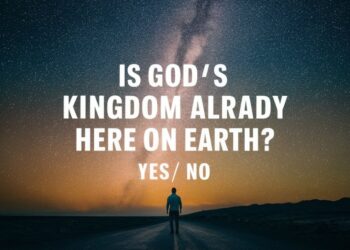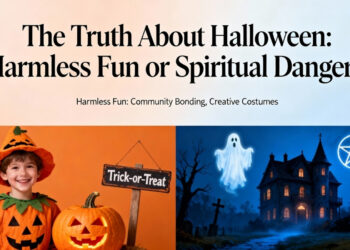No products in the cart.
Church and State Relations: The Intersection of Faith and Government
This post contains paid and/or affiliate links. I make a small commission at no extra cost to you. Please see our Privacy Policy.
The relationship between church and state in the United States is key to our society. A fine balance has shaped our laws, public policies, and cultural norms. The mix of faith and government deeply affects our lives, shaping how we live, our values, and the rules that govern us.
The First Amendment of the United States Constitution protects religious freedom. It stops the government from setting up a religion or stopping people from practicing their faith freely.
This has made our country a place where people of faith can share their values and beliefs in politics.
People of faith are encouraged to get involved in politics during elections. They want to support policies that tackle social issues and match their faith’s principles. The connection between faith and government is vital when we decide on things that affect society.
Key Takeaways:
- The Constitution’s First Amendment defines the relationship between church and state in the United States.
- Religious freedom allows individuals to bring their values and beliefs into politics.
- Faith influences political engagement and motivates individuals to advocate for policies aligned with their beliefs.
- The intersection of faith and government becomes particularily relevant during elections.
- Understanding the impact of church and state relations is key for shaping laws and public policies.
Perspectives on the Intersection of Faith and Political Engagement
Different views shape how we see the connection between faith and political engagement. Let’s look at what two scholars have to say about this.
Rev. Marvin McMickle: Politics as a Means of Grace
Rev. Marvin McMickle, a well-known professor of religious studies, thinks politics can be a way to show grace when it matches religious values. He stresses the role of religious leaders in pushing for policies that tackle social issues and stick to their faith’s principles. For Rev. McMickle, using one’s faith to guide political actions is both an opportunity and a duty.
Rev. McMickle highlights the importance of caring for those in need and striving for unity as key parts of faith. He believes that when politics is based on these values, it can lead to real positive change.
People of faith can make a big difference by fighting for justice, supporting those who are marginalized, and backing policies that reflect their faith’s teachings.

Beth Gerhardt: Implications of Faith and Politics
Beth Gerhardt, a respected theology professor, offers a different view on faith and political engagement. While she agrees that faith can shape our political views, Gerhardt warns against mixing political stances with faith’s principles.
Gerhardt says it’s important to keep an open mind in political discussions. She points out that people with different political views can genuinely believe in their faith.
She fears that using faith to sway politics can cause division and judgment within faith communities.
Gerhardt advocates for respecting different perspectives and for dialogue that values everyone’s dignity, no matter their politics.
By keeping politics separate from faith’s core, Gerhardt encourages unity, understanding, and kindness in our diverse political world.
- Rev. Marvin McMickle believes that politics can be a means of grace when it aligns with the values of religious faith.
- Beth Gerhardt cautions against conflating political positions with the principles of one’s faith, stressing the need for respectful dialogue and understanding.
The Power of the Sword and the Power of the Keys
The sword’s power is about the government’s role to protect life and culture. It also helps the church do its work. Governments must keep justice, peace, and protect people’s rights as God’s image-bearers.
The power of the keys is for churches to share their faith and guide their members. Churches are key in keeping and spreading religious values and morals in society.
Defining Church and State Relationships
The term “church and state” talks about the bond between religious groups and governments. But, this term mainly comes from Christian views. It might not fully cover other religions.
Some say we should use “religion and state” instead. This term highlights the role of religion in society. It shows that different beliefs shape our world.
Recognizing the Diversity of Relationships
Church and state ties vary greatly around the world. History, culture, and laws shape these bonds.
In some places, churches and governments work closely together. For example, the Church of England is closely tied to the English government.
In other areas, like secular states, religion and government are separate. These places focus on keeping government neutral in religious matters.
The Interplay of Church and State
Church and state ties deeply affect society. They influence how religious groups and governments work together. They also shape our culture and laws.
New Problems and the European Construction
New challenges have arisen in the church and state relationship. Issues like bioethics, morality laws, and cultural diversity are key. These problems need careful thought and solutions.
Bioethics:
- Issues like stem cell research and genetic engineering have sparked debates. They question the role of religion in laws and norms.
- The mix of science and faith has made it hard to set boundaries. It’s about balancing values and new medical technologies.
Morality Laws:
- Laws on personal choices, like abortion and marriage, have caused big debates. These debates often involve religious beliefs.
- It’s a big question whether personal choices should follow religious teachings or be up to each person.
Cultural Diversity:
- More cultural diversity has brought up issues of religious freedom and secular values. It’s about how to welcome and integrate different cultures.
- Living together with different beliefs and secularism has made it hard to find a balance. It’s about respecting freedom while keeping a secular state.
In some secular states, using religion in laws is debated. It’s about whether religious beliefs should guide laws or if secular values should rule.
The European Union also plays a role in church and state relationships. The EU supports religious freedom and impartial public powers.
It helps countries deal with the complex church and state issues in a European context.
Church-State Relationships in Western Europe
Church-state relationships in Western Europe are very different. Each country has its own way of dealing with religion and the state.
From state churches in Northern Europe to the unique systems in the Netherlands and Belgium, the mix of religion and government varies a lot.
In England, the Church of England is the official state church. Germany recognizes both Catholic and Protestant faiths. Italy, Spain, and Portugal give special status to the Catholic Church.
History and the search for national identity shape these relationships. These factors influence how religious groups are seen and included in society.
In France, a key concept is laicity, or secularism. France keeps religion and the state separate. It aims for religious neutrality in public life.
In summary, church-state relationships in Western Europe are diverse. Understanding history, culture, and law is key to grasping these complex interactions.
The Ideal Type of Laicity
Laicity is important in church-state relationships. It means not having an official religion or forcing religious rules on society. It values freedom of religion and protects different beliefs.
Laicity is more than just tolerance. It respects and values all beliefs, without favoring one over another.
Laicity is the base for laws on religious freedom and church-state ties in many European countries. It ensures fairness and freedom to follow any religion or none.
By following laicity, societies can be inclusive, respecting everyone’s faith and fostering harmony.
Conclusion
The mix of faith and government is vital in our society. Looking at church-state relationships helps us understand laws and culture. These relationships vary and are shaped by history, law, and society.
It’s important to balance religious freedom and secular governance. Respectful dialogue can help create a fair relationship between faith and government.
This means respecting everyone’s beliefs and giving them equal rights in our democratic societies.
Exploring church and state relations is complex. We must uphold religious freedom and fairness in public life. Finding a balance between different rights and values is hard.
Yet, we can build a society where faith and government work together. Understanding, empathy, and cooperation are key.
Only through working together can we respect both religious beliefs and our secular democracy.
FAQ
What is the relationship between church and state in the United States?
In the United States, the First Amendment’s establishment clause sets the rules. It stops the government from making a religion or stopping people from practicing theirs.
Why is the intersection of faith and government relevant during elections?
During elections, faith and government are closely tied. Religious people are encouraged to vote based on their beliefs. They aim to support policies that match their faith.
What do religious scholars say about the role of politics in religious faith?
Rev. Marvin McMickle thinks politics can be a way to show grace when it matches religious values. He mentions caring for others and seeking unity. Beth Gerhardt, a theology professor, agrees faith should guide politics. But, she warns against mixing political views with faith’s core principles.
What is the power of the sword and the power of the keys?
The sword’s power is the government’s authority to protect life and support culture. It also helps the church do its work. The power of the keys is the church’s role to share Jesus’ message and guide its members spiritually.
What is the term commonly used to describe the relationships between religious organizations and secular government?
The term “church and state” describes the relationship between religious groups and government. But, some argue it’s mainly for Christian contexts. They say it should be more inclusive of other religions.
What challenges do societies face in the relationship between religion and the state?
Societies now face challenges like bioethics and morality laws. These issues question religion’s role in laws and norms. Cultural diversity adds to these debates.
How do church-state relationships vary across different countries in Western Europe?
In Western Europe, church-state ties differ. Some have state churches, while others have pillarized cultures. Each country’s history and search for identity shape its unique arrangement.
What is laicity?
Laicity means not having an official religion or imposing religious laws. It values religious neutrality and freedom. It aims to respect all beliefs and philosophies in society.
Why is understanding the intersection of faith and government important?
Understanding faith and government is key for everyone. It’s about balancing religious freedom with secular rules. By talking openly, we can build a fair and inclusive relationship between faith and government.













